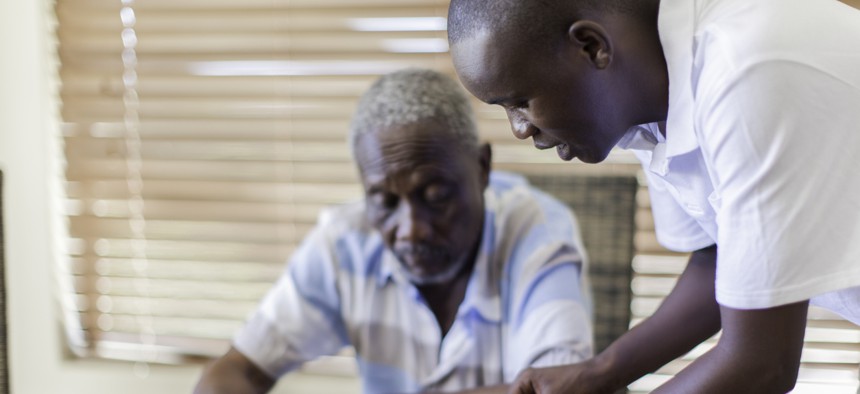Unpaid Family Caregivers Lose $522B in Wages Every Year

istock.com/AfricaImages
COMMENTARY | The 53 million people who provide critical care and support to older adults and people with disabilities are suffering financially, physically and mentally. It’s time for governments to do more for them.
Caregiving for a close relative or friend is financially, physically and emotionally taxing. RAND Corp. research shows family caregivers lose a staggering $522 billion in wages every year while caring for a close relative or friend. But it is not just the loss of income that puts a financial strain on the 53 million people in the United States who provide care to someone close to them.
Ten million caregivers aged 50 and older will lose a total of $3 trillion in wages, pensions, retirement funds and other benefits due to their caregiving duties, according to the National Alliance for Caregiving. These figures are more staggering when you consider that nearly two-thirds of family caregivers are employed, meaning they are juggling caregiving responsibilities with their job.
The cost of caring for a loved one is high. Family caregivers spend, on average, one-quarter of their annual income on caregiving expenses, according to AARP. Three-quarters of these family caregivers spend more than $7,000 annually on out-of-pocket expenses, and this increases to as high as $11,000 for caregivers of someone with dementia.
The financial toll is made worse by the emotional and physical strain. According to the Family Caregiver Alliance, caregivers report poorer health and endure chronic stress.
While many family caregivers are supported by direct-care providers, those individuals are often under-trained and work grueling hours for low pay and limited benefits. One-in-eight direct-care workers live in poverty, and three-quarters earn less than the average living wage, according to research published in Health Affairs.
The lost wages, the physical and emotional stress, the lack of support, the inadequate training and few viable alternatives create a large and growing problem that we must address, especially given the aging population. Policymakers must face this reality now with creative solutions that meet the full extent of the challenge.
The congressionally authorized RAISE (Recognize, Assist, Include, Support and Engage) Family Caregiving Advisory Council recently delivered 26 recommendations that provide a policy roadmap to aid caregivers. They aim to provide support in ways that reflect caregivers’ diverse and urgent needs through policies like paid leave, workplace protections and expanded access to home- and community-based services. Specifically, the RAISE Council recommends implementing solutions like providing counseling to family caregivers, respite care and peer support to family caregivers and training on common in-home medical tasks.
Recommendations also address the needs of the nation’s direct-care workforce, including better training, fair compensation and basic benefits for the individuals in our communities entrusted to take care of people when they are at their most vulnerable.
Already, states are taking on the issue. State officials in New York are surveying employers on the needs of their workers who are family caregivers to ensure they get necessary support, and Iowa has developed a standardized family caregiver assessment to connect caregivers with counseling, assistance and case management. But more must be done, at every level and quickly by providing family caregivers with the support they need, we can improve care for both the caregiver and their loved one.
Rani Snyder is vice president of Program at The John A. Hartford Foundation, a private philanthropy dedicated to improving the lives of older adults and family caregivers. JAHF has partially funded the work of the RAISE Family Caregiving Advisory Council.
NEXT STORY: Cities With the Least and Most Energy Use





